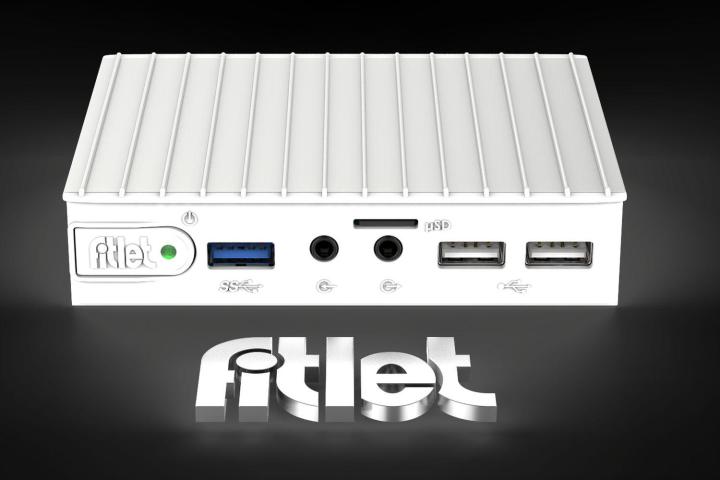
And let’s not forget CompuLab, the lower-profile computer manufacturer that recently jumped on our radar with the Android and Linux-running fanless Utilite 2. Their latest design is fanless too, but it also supports 64-bit Windows 7 and 8 for extra productivity.
Android is brushed aside altogether, while Linux stays on as a low-cost option. Although the Fitlet is a more “serious” machine than the Utilite 2, capable of strenuous tasks, not just fun and games, it’s still extremely easy to carry around, tipping the scales at under nine ounces.
Resembling a tiny router on the outside, the CompuLab Fitlet is rare among mini-PCs because it relies on AMD’s 64-bit quad-core A4 Micro-6400T, which bundles Radeon R3 graphics.
More or less an Intel Atom equivalent, the AMD APU also known by its internal code name, Mullins, is housed inside a passively-cooled frame that can handle up to eight gigabytes of DDR3 memory, and one terabyte of mSATA storage. Standard features include dual-display compatibility, thanks to a pair of HDMI connectors, dual Gigabit Ethernet, 802.11ac Wi-Fi, Bluetooth 4.0, and a whopping six USB ports, including a duo of 3.0 slots.
Not too shabby for $129, which is the starting price of a Fitlet-B barebones with Windows and five-year warranty, but no bundled internal storage or RAM.
Due out in February, B configurations will be chaperoned to market by Fitlet-i ruggedized versions, and Fitlet-Xs for industrial networking PC applications. The latter shall accommodate no less than four Gigabit LAN ports right off the bat. Last but not least, the Linux Mint-based CompuLab Fitlet is to roll out in stores in Q2 as the MintBox Mini. Exact pricing is unknown.


